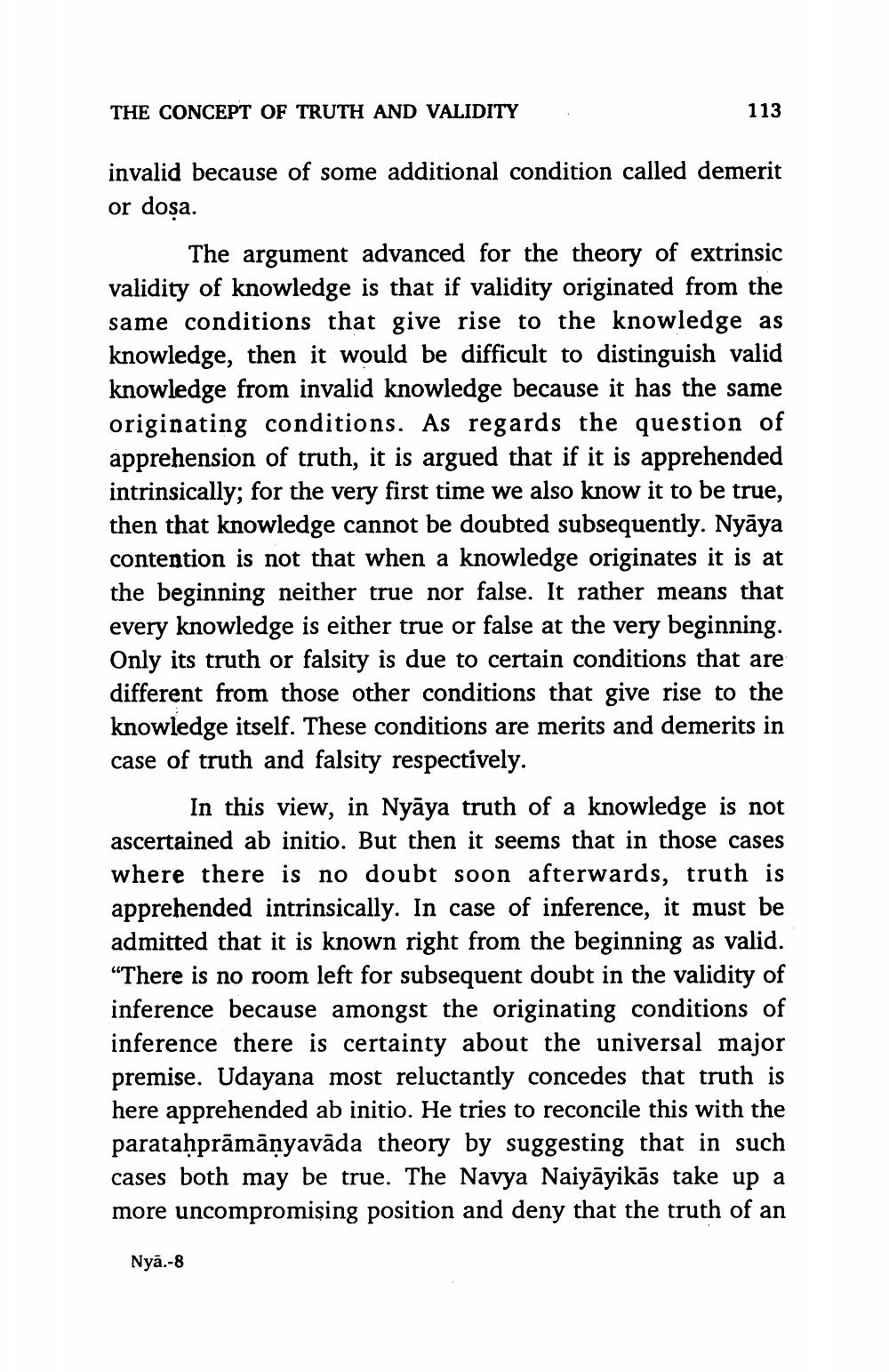________________
THE CONCEPT OF TRUTH AND VALIDITY
113
invalid because of some additional condition called demerit or doṣa.
The argument advanced for the theory of extrinsic validity of knowledge is that if validity originated from the same conditions that give rise to the knowledge as knowledge, then it would be difficult to distinguish valid knowledge from invalid knowledge because it has the same originating conditions. As regards the question of apprehension of truth, it is argued that if it is apprehended intrinsically; for the very first time we also know it to be true, then that knowledge cannot be doubted subsequently. Nyāya contention is not that when a knowledge originates it is at the beginning neither true nor false. It rather means that every knowledge is either true or false at the very beginning. Only its truth or falsity is due to certain conditions that are different from those other conditions that give rise to the knowledge itself. These conditions are merits and demerits in case of truth and falsity respectively.
In this view, in Nyāya truth of a knowledge is not ascertained ab initio. But then it seems that in those cases where there is no doubt soon afterwards, truth is apprehended intrinsically. In case of inference, it must be admitted that it is known right from the beginning as valid. "There is no room left for subsequent doubt in the validity of inference because amongst the originating conditions of inference there is certainty about the universal major premise. Udayana most reluctantly concedes that truth is here apprehended ab initio. He tries to reconcile this with the parataḥprāmāṇyavāda theory by suggesting that in such cases both may be true. The Navya Naiyāyikās take up a more uncompromising position and deny that the truth of an
Nya.-8




